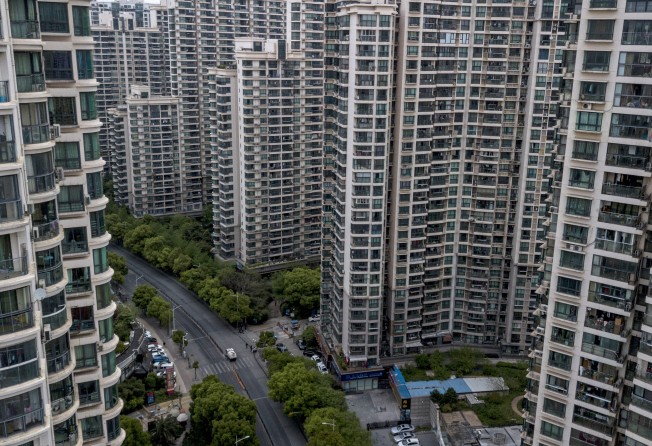Hong Kong-listed Chinese developers post strong profits. So why aren’t investors on a buying binge?
Investors look ahead to see policy weights on property sector, as local governments adopt price caps that could limit future gains

China’s Hong Kong-listed developers have been reporting strong half-year profits. But investors are looking ahead to see heavy weights on what has been a booming sector.
The chief driver of Chinese developers’ earnings – cheap land and rising selling prices – may all but be disappearing, as expensive plots the developers acquired in 2016-2017 will face price caps.
Since 2016, 83 mainland cities have imposed property curb measures. In Beijing, Shanghai, Shenzhen and provincial capitals, residential projects are not allowed to be sold if authorities declare that the prices are too high. On Sunday, Sanya, China’s southern tropical resort city, introduced the toughest price caps yet – telling developers to cut prices and freeze them for six months.
Adding to that, the government’s deleveraging campaign is making borrowing more difficult.
The downbeat climate means companies are not as eager to buy new land to develop.
Last year, developers aggressively purchased land in hope of policy easing. But this year, a record portion of land auctions in 300 cities failed to find buyers, according to analysis by China Securities.
“Investors are primarily concerned about the future. From their perspective, looking at the sector down the road, they can only see downside risk, not much upside,” said David Hong, head of research at CRIC Hong Kong.
Meanwhile, developers had prepared investors for strong performances, analysts said, meaning the interim results that have rolled in were pretty much expected.
Of the 12 of the Hong Kong-listed Chinese developers that have released half-year results, only one missed estimates.
The results reflected strong contracted sales in 2016 and 2017, whose revenue and profits are booked one or two years later. Contracted sales growth in the first half of 2018, for top 100 developers recorded a 36.5 per cent rise, following a 52.8 per cent jump in 2016 and 32.8 per cent for 2017. Analysts said the first half’s performance had locked in robust earnings for the second half and 2019.
Major developers’ stock now are trading 4 to 8 times of earnings, down from 6 to 12 times in 2017. The interim results did little to lift valuations.
Share prices have had mixed reactions to the recent interim reports.
On August 21, China Resources Land posted the biggest core net profit growth of 152 per cent. Its shares rose 8.3 per cent on that day, but fell back the next day. They are were last trading 21.3 per cent higher for the year.
Meanwhile, China Evergrande Group, the latest to release interim results on August 28, posted a 101.5 per cent gain in core net profit. Its shares closed that day down 1.35 per cent, and closed Wednesday up 7.4 per cent for the year.
But China Overseas Land and Investment, which reported a 14 per cent rise in core earnings on August 23, saw its shares rise with a 3.8 per cent gain. It has fallen about 4.6 per cent this year.
Soho China missed estimates. Its shares slumped 6.8 per cent on the release day, and are now trading down 30.9 per cent for the year.
“The general picture is earnings are good, gross margin improved, though gearing ratio also rose in some firms. This is a continuation of last year,” said Alan Jin, a property analyst with Mizuho Securities Asia.
“The tune [for the property sector] has become more cautious compared with the beginning of this year, as there is more worry that mortgage deceleration means slower cash recovery and lower selling-through rate. For some bullish analysts, they’ll have to downgrade their previous estimates for 2020, or even 2019,” Jin said.
To be sure, the property sector has not been helped by the overall weakness of Hong Kong shares. The Hang Sang Index has declined 5.2 per cent so far this year, while the Hang Sang Mainland Properties Index is off a bit more, down 5.7 per cent.
But property developers acknowledge the sector is carrying its own additional baggage.
“We are in a time when new policies could come out any time,” said Yan Jianguo, chairman of China Overseas Land and Investment, at a briefing on his company’s results. “So prudency is needed. We would rather miss a plot, instead of investing in a wrong plot.”